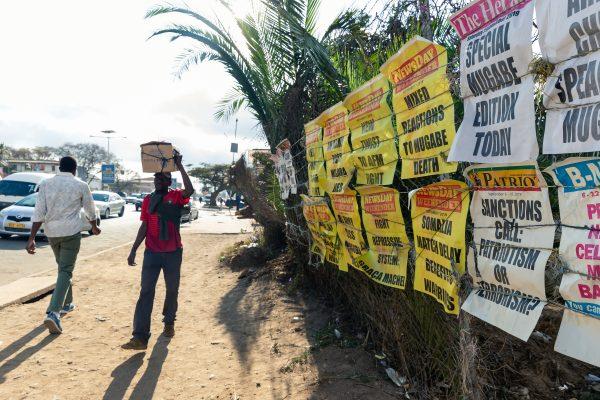HARARE, Zimbabwe—Observing daily life in Zimbabwe’s capital Harare, it’s as if the death of former dictator Robert Mugabe has no bearing on its citizens, with people just going about their business as usual in the poverty-stricken southeast African country.
Zimbabweans who spoke to The Epoch Times didn’t have many kind words about the former statesman, who died at age 95 in a hospital in Singapore, because they believe the dire state of the country is because of him.
Mugabe had inherited a vibrant economy in 1980, when the southern African country gained its independence from the UK. But Mugabe ruined it, with the country now no longer having its own currency, newspaper columnist Cyprian Mketiwa said.
“Corruption spread under the former president’s watch, but he did nothing. Mugabe was involved in a scandalous purchase of three airplanes from Malaysia, in which millions of dollars were siphoned off is a case in point,” Mketiwa said.
Patient Dhliwayo-Chiunzi, a biotechnology lecturer at the Harare Institute of Technology, said of Mugabe: “He was a fine orator, good strategist, learned, and intelligent. However, he was a cruel and cunning killer, who ruthlessly eliminated his enemies using cunning methods and using loyalists and thieves with whom he brought the country to its knees.”




